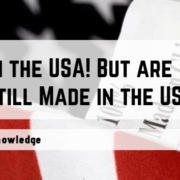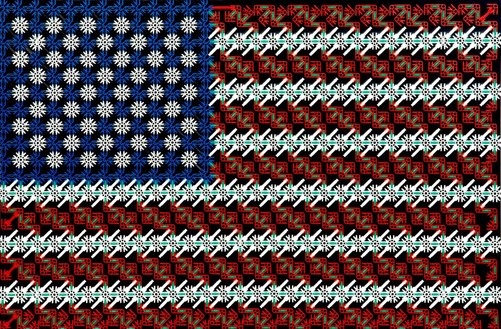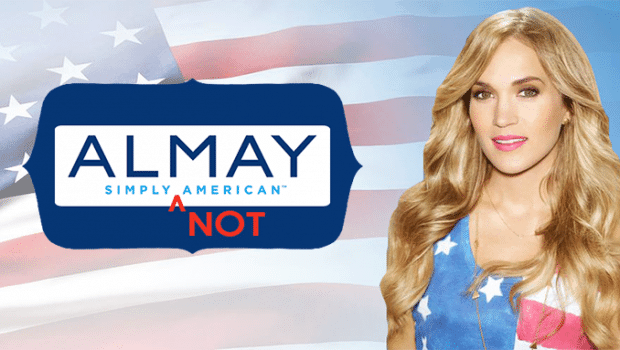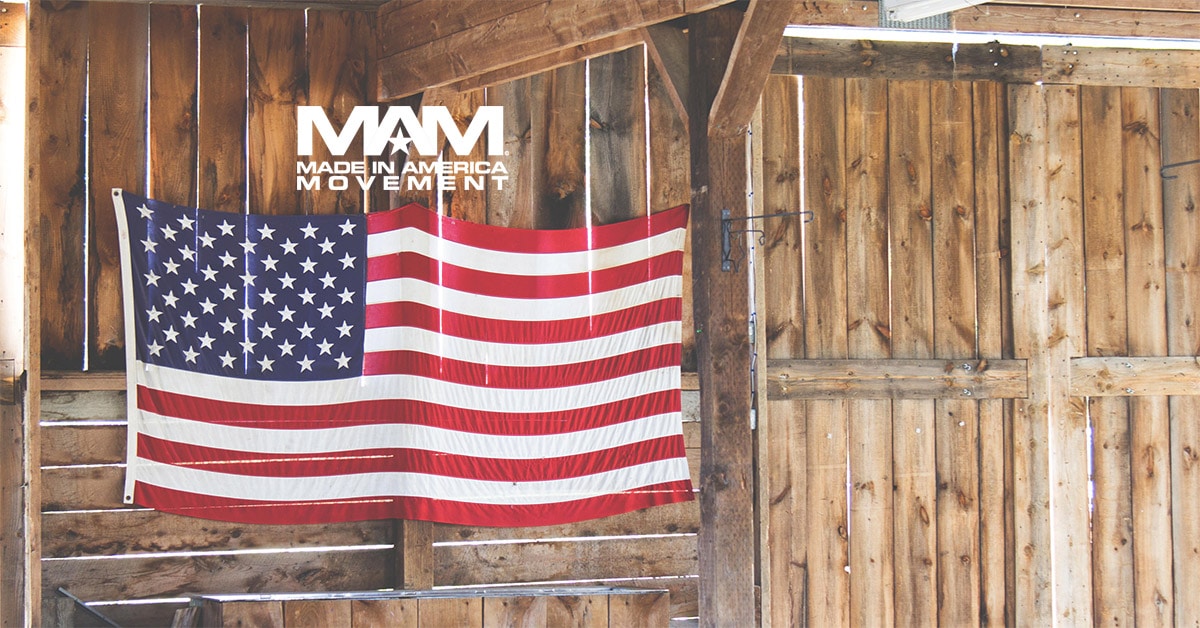Born in the USA! But are they still Made in the USA?
Can you tell if something is Made in USA?
Did you know that Craftsman tools are no longer Made in the USA? Today, it’s hard to know where products are made. From shoes to jeans to the food you place on your dinner table, our team is dedicated to making this easier for you.
Test your skills with the USA Made Quiz below! Do you know if an item/product is Made in the USA or made somewhere else? Check out some well-known brands in this quiz. These are just some of the most unexpected companies who have ditched domestic manufacturing.
Which American brand did you grow up with that no longer makes their products in the USA? Let us know in the comments below!
Are you a business based out of the USA? Are you a Made in USA maker/manufacturer/distributor? Work with us! As a MAM Member, we will showcase your brand/business to our loyal readers. Complete this form and a MAM Rep will be in touch within 24hrs.









Brach candies when I noticed that on the bags, I stopped all pruchases. Finding USA made candy canes for on my Christmas tree is quite a callenge these days. What a shame, bring productions back…
Some law must have been changed along the way. Products used to say where a product was made; now in many cases it says “Distributed by” a company located in the USA. Also; many formerly American companies are now owned by “international” corporations. Slowly they move the manufacturing out of the USA but keep a few corporate offices here to give the impression that they are still an American company.
Sorry but the laws are intact….. these scumbags are “weasel wording” their labels to confuse consumers! If you want 100% MADE IN USA then DO NOT BUY products labeled as: Distributed By “some company in the US” it is NOT 100% MADE IN USA!!!! Please pass this forward…..
Customs-based FCA violations on the Rise
March 8, 2016
The 2015 Fiscal year ended on Sept. 30, 2015, and for the fourth consecutive year, the Department of Justice (DOJ) has exceeded $3.5 billion in cases under the False claims Act (FCA). Since 2009, to the end of the most recent fiscal year, settlements under the FCA have brought total recoveries to approximately $26.4 billion. The FCA is the government’s most effective civil tool to ferret out fraud and return billions to taxpayer funded programs. Although FCA recoveries historically have been attributable in large part to cases involving allegations of fraud in connection with health care programs and government procurement, a new trend is emerging. Recently, a variety of international trade rules and regulations are serving as the basis for FCA suits. Companies operating in the international trade arena should be aware of this new trend and take steps to shield themselves against potential liability for international trade transactions.
While the international trade community has not been immune to the FCA, it has been able to somehow fly below the radar of FCA suits. However, recently private litigants and the DOJ have increasingly been bringing cases under the FCA to penalize false and fraudulent statements allegedly made during the import process. This is in addition to the administrative penalties imposed by the U.S. Customs and Border Protection (CBP). As a result, importers are facing potential additional liability for actions based on customs violations, which can result in substantial statutory damages.
The FCA is a particularly powerful enforcement tool as it allows for treble damages and penalties, and because FCA claims can be initiated by private qui tam plaintiffs, known as relators, or more informally whistleblowers. The ability of a private individual to bring action on behalf of the government and the financial incentive that accompanies a qui tam suit is a key factor behind the growing use of the FCA to prosecute customs violations. Violations may be met with civil penalties of up to $11,000 per false claim (e.g., per customs entry) and three times the government’s actual damages. Furthermore, a provision added to the FCA in 1986 allows a whistleblower who files a lawsuit on behalf of the government based on their knowledge of corporate malfeasance to receive up to 30 percent of any penalties awarded. This 1986 provision has led to more investigations and recoveries, with the number of qui tam suits filed in fiscal year 2015 reaching 638, and recoveries totaling $2.8 billion when combined with earlier filed suits this past year. Whistleblower awards during this same period totaled $597 million.
At the height of the Craftsman reputation, Sturtevant Richmont built their torque wrenches and branded them as Craftsman. As Sears looked to fend off cheaper, off-shore products, they asked Sturtevant Richmont to cut the quality and lower the cost. Rather than sell the difference, they chose to follow the market. Sturtevant Richmont refused to do that because they have a commitment to quality and they make the best torque wrenches on the planet. Sturtevant wouldn’t vary from their brand. Today, Sturtevant Richmont torque tools and testers are still made by highly skilled union hands, right here in America. They still have the reputation for making tools that are accurate, reliable, and durable. There are zero foreign sourced parts. Even the electronics are made in the US.
my father was a union plumber. I am a union electrician. My father always said that Grohe USA made The best bathroom fixtures. I went to Lowe’s, and purchased their wexford basin fixture. The valve body was made out of nylon. I finally got it out of a customer service representative, that Grohe agreed to build substandard fixtures, to be sold at Lowe’s. It was actually manufactured in Canada. I went to a real plumbing supply, And purchased one with a brass valve body. It’s a shame that A company would be willing to toner is their good name, Just to make a POS product, to satisfy the whims of Lowe’s and the Home Depot. It cost me about $40 more. What a disgusting shame.
this is wrong about craftsman tools i know for a fact that the tape measures are made here in ct and other tools are made around the unites states.
A specific product or a few may be made in USA but that is far from the entire brand making all of their products in the USA. Frequently companies that once qualified to use the Made in USA label on all of their products will keep a few products made entirely in America so that they can continue to capitalize on the former quality perception for the brand. Others were previously made entirely offshore and have begun moving entire lines of products to the States.
This is why we’re thankful for consumers like you that look at an individual product for the Made in USA label.
I can’t tell if your comment is aimed at torque wrenches or not. Sturtevant Richmont built the beam style torque wrenches for Craftsman for many years. Sturtevant doesn’t build any products outside the world of torque tools. So I agree that Sturtevant didn’t build tape measures. They have never built tape measures. They onliy build torque tools and testers.
Timbuk2 advertises as if they still make their bags in the U.S., but sadly, only less than about 1% of their bags are actually still made here.
Yes, Pyrex is made in America but their lids are made in China. The lids crack, bend and break.
It is quiet easy to find out if the company wants to be known for “Made in USA”. The hard part is getting people to care.